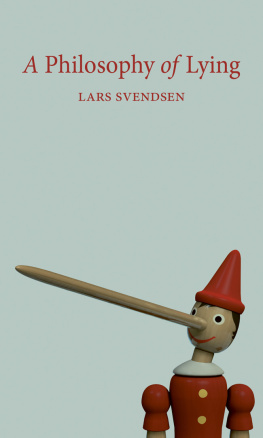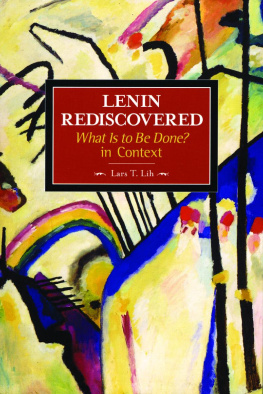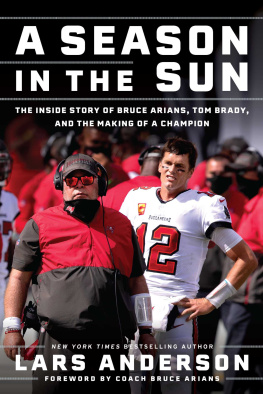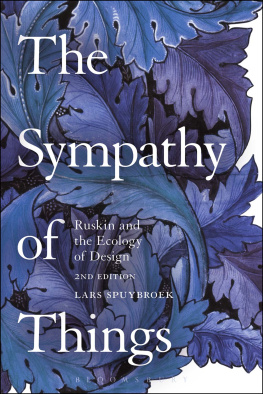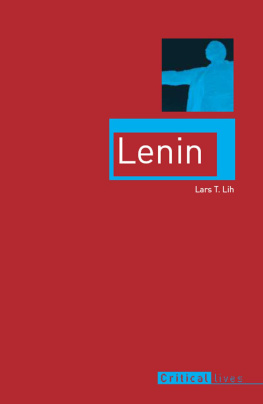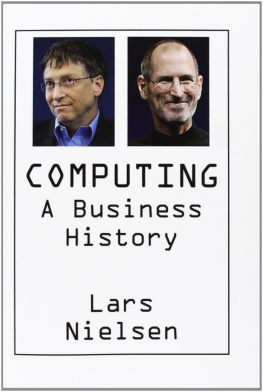Lars Wirzenius - Getting Things Done for Hackers
Here you can read online Lars Wirzenius - Getting Things Done for Hackers full text of the book (entire story) in english for free. Download pdf and epub, get meaning, cover and reviews about this ebook. year: 2012, genre: Business. Description of the work, (preface) as well as reviews are available. Best literature library LitArk.com created for fans of good reading and offers a wide selection of genres:
Romance novel
Science fiction
Adventure
Detective
Science
History
Home and family
Prose
Art
Politics
Computer
Non-fiction
Religion
Business
Children
Humor
Choose a favorite category and find really read worthwhile books. Enjoy immersion in the world of imagination, feel the emotions of the characters or learn something new for yourself, make an fascinating discovery.
- Book:Getting Things Done for Hackers
- Author:
- Genre:
- Year:2012
- Rating:3 / 5
- Favourites:Add to favourites
- Your mark:
- 60
- 1
- 2
- 3
- 4
- 5
Getting Things Done for Hackers: summary, description and annotation
We offer to read an annotation, description, summary or preface (depends on what the author of the book "Getting Things Done for Hackers" wrote himself). If you haven't found the necessary information about the book — write in the comments, we will try to find it.
Getting Things Done for Hackers — read online for free the complete book (whole text) full work
Below is the text of the book, divided by pages. System saving the place of the last page read, allows you to conveniently read the book "Getting Things Done for Hackers" online for free, without having to search again every time where you left off. Put a bookmark, and you can go to the page where you finished reading at any time.
Font size:
Interval:
Bookmark:

David Allen's "Getting Things Done", or GTD for short, is a popular, powerful system for managing one's life. If you have trouble dealing with your e-mail inbox, or feel you're drowning under a flood of inputs and information, or just don't seem to have time to do everything you think you should be doing, or others want you to do, then GTD may be a good thing for you to consider.
This book explains how I, a computer geek, have implemented it in my own life. It is aimed at everyone whose lives include a lot of computer use, and who know how to use their computers.
This book stands independent from Allen's three books on GTD, but you'll benefit from reading the first or third of those as well. (The second one should be considered optional.) I provide a different view of, and perhaps opinion of, the GTD system.
I discuss what has been good about GTD for me, what has been hard to implement, and what has not worked. My goal is to explain what I do, and provide inspiration to you for building your own GTD system.
GTD is not a system you buy in a shop and install on your desk. It is a meta-system: it provides some tools, a lot of guidelines, and principles, from which you create a system that works for you. For example, GTD assumes you will maintain lists, but does not specify how to do that. You can maintain a list on a pad of paper, in a text document on your computer, or by sticking photos of people on a notice board. It all depends on what kinds of things you need to keep track of, and on what tools you have and enjoy using. I am not going to discuss specific software tools in detail, since I have not made a survey of them. I will explain what I use myself.
In the middle of 2006 I noticed that I was massively failing to do things I'd promised to do, or that I wanted to do, or that I absolutely had to do. I was forgetting to buy food before a holiday, and then scrambling to feed myself while the shops were closed. I had been an independent consultant/contractor for a year and a half, and struggling to meet deadlines. I kept doing things, then realising some other things were about to explode in my face, and switching to do deal with that, until I noticed another emergency brewing.
I realized that I was under too much stress, and this made me unhappy, and that made me less productive, which made me more stressed, and that there was no end to this recursion. I needed to deal with it, and decided to spend a bit of time to do so.
I looked at a few personal productivity systems, but they didn't seem very convincing to me. I tried cooking up my own, but felt my own attempts didn't really solve the problem. I switched from keeping everything in my head to writing everyting on post-its, but then I kept losing the bits of paper, or forgetting to read them at the right time.
I happened to remember someone blogging about the GTD system, and when I read about it, it clicked. Pieces fell into place and things started to make sense. I started applying GTD to my life, and my life started getting better.
I don't know if it was purely because of GTD, or mainly because of GTD, but having GTD shape my thinking about these things definitely made a difference to me.
It might be that any of the other myriad personal productivity systems will do equally well. I haven't tried many of them, so I don't know. I'm not trying to convince you one way or another: I explain what I do, and why, and you decide if it makes any sense to you.
Personal productivity systems have been around for a long time. Allen published his first GTD book in 2002, and for the next few years, there was quite a lot of buzz about it on the Internet. Something about GTD spoke to geeks, and they blogged about it, and dived into endless discussions about which color pen to use to write things down, or which software to use to keep an outline on what color computer. By 2007 the buzz had mostly died, and those who liked GTD kept using it.
An influential blogger during that era was Merlin Mann, and his most important creation was Inbox Zero. It's an elegant condensation of the GTD system for dealing with e-mail, and that may be all you need. Many of us hackers pretty much do everything via e-mail, so if you get that under control, you'll be fine. Go read.
This book is written using an Ikiwiki instance at http://gtdfh.branchable.com/, hosted on the Branchable service. (I am involved in running Branchable.)
Ikiwiki input is in Markdown format. I use scripts and tools to convert that into PDF, EPUB, and Mobipocket formats, for reading outside a browser. I'm currently using Pandoc and Calibre's ebook-convert to do this.
The book is licensed under a CC-BY-SA 3.0 (Unported) license. However, the site is only editable by myself, at least for now. I gratefully accept suggestions and will consider patches, but since the book explains what I do, I am not sure I want everyone to be able to edit it. If you want to make your own version of the book, feel free to branch the site on Branchable and make any changes you like to the content.
"Getting Things Done" and "GTD" are registered trademarks of the David Allen Company.
GTD is a system for managing your life: what you want to achieve, how you plan to achieve that, and how you deal with all the stuff life throws at you. You decide goals, the system helps you reach them.
A condensed summary of GTD:
- stuff enters your life, and you either deal with it immediately, or put it in one or more inboxes
- you empty your inboxes regularly from stuff
- stuff is dealt with by one of the following:
- do it at once (if it's quick, or you have to, or really want to);
- defer it for later;
- delegate it to someone else;
- file it somewhere (if you may need it later);
- discard it (ignore it, throw it in a trash bin, whatever)
- keep several lists:
- next actions: deferred stuff;
- projects: anything that needs more than one next action to be finished;
- waiting for: delegated stuff;
- someday/maybe: what you may want to do someday, but isn't an active concern right now
- at least once a week, process all inboxes, and review all lists
- have an archiving system for documents and such
- have a system for keeping handy files and other things relevant to current projects and next actions
You may now skip the rest of the book.
Consider how you deal with e-mail. All your e-mail arrives, automatically, unbidden, unwanted, unloved, in one or more inboxes. You might have one inbox for work, and another for personal use. Further, you might have automatic filters that move some incoming e-mail into other folders: software developers are often on many discussion mailing lists, each of which goes into its own folder. Each such folder would be a separate inbox.
A common anti-pattern for people is to keep e-mail in their inboxes. They read it, and leave it there. The next time they read e-mail, there might be some new mail, which they read, and leave there. Eventually, the mail piles up a lot, and it gets hard to find a specific mail you may need. Even more importantly, it gets hard to know which mails still require you to do something. Perhaps there was a mail from your boss you need to re-read? Or a mail from your mother that you need to reply to? Or perhaps you replied to her already? Can't remember if you did?
Font size:
Interval:
Bookmark:
Similar books «Getting Things Done for Hackers»
Look at similar books to Getting Things Done for Hackers. We have selected literature similar in name and meaning in the hope of providing readers with more options to find new, interesting, not yet read works.
Discussion, reviews of the book Getting Things Done for Hackers and just readers' own opinions. Leave your comments, write what you think about the work, its meaning or the main characters. Specify what exactly you liked and what you didn't like, and why you think so.




